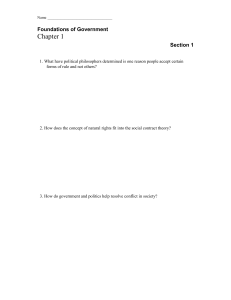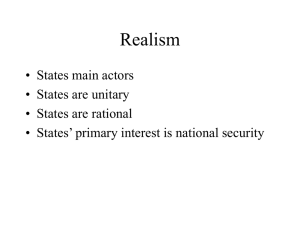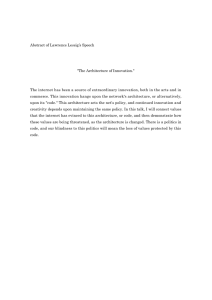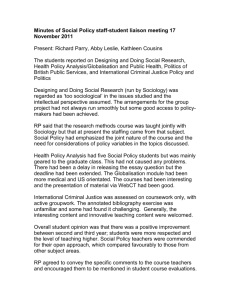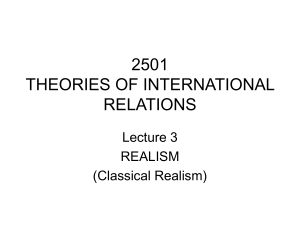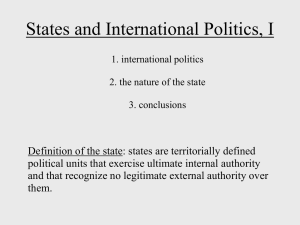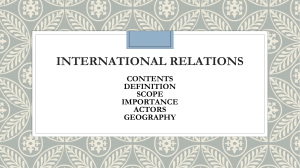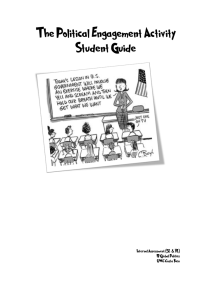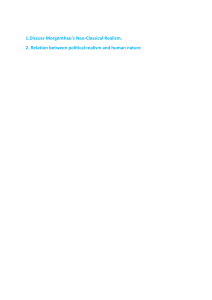#1, Overview
advertisement
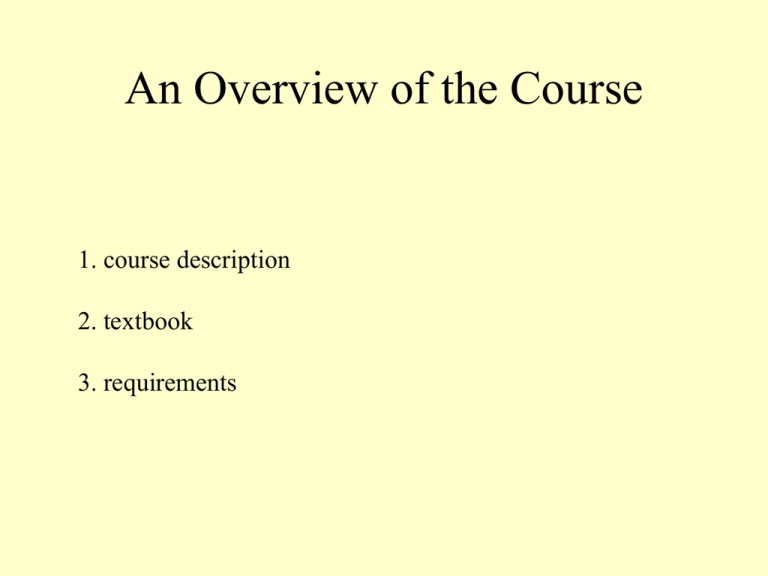
An Overview of the Course 1. course description 2. textbook 3. requirements 1. course description a. introduce principles of international politics i. class assumes no previous background in the field, but at least some awareness of current events and interest in them ii. course can be an introduction into higher-level ones in IR or in other disciplines linked to international studies iii. lectures and discussion sections balance among formats for learning iv. curriculum includes an introduction to major theoretical perspectives in the field, linked to both historical evidence and current events as relevant v. LOTR used to facilitate learning – a very complete world with its own international relations b. begin with foundations i. talk first about states, which are the major players in international politics ii. nature of foreign policy – basic actions of states iii. the realist approach – the standard within the field for over a century – is introduced iv. the major contemporary variant of realism, structural realism, is singled out for further attention v. continue with perspectives on, and a description of, foreign policy, in terms of both process and action vi. will cover both national security and political economy vii. emphasis on US, given greater familiarity, but not exclusively viii. find this happens naturally because of US’ central role in 20th century c. power politics is next i. we will cover the exercise of power among states ii. interstate bargaining will receive in-depth treatment iii. e.g., we explore the connection of domestic and international politics d. turn next to strategic interaction i. assess how preferences of states affect what happens between and among them ii. this includes subjects ranging from deterrence to ethnic conflict iii. success in international politics is not always about power, but instead often about tactics, as in the case of US and North Korea regarding nuclear weapons and economic assistance iv. the roles played by preferences and perceptions among actors will take us beyond the foundations of the field, which focus exclusively on states as actors e. international organizations i. explore limits to state power as well through a focus on international organizations, a topic of increasing interest in the field ii. global (UN) and regional (EU) in focus f. finish with specific attention to interstate war i. look at the causes of war from a range of perspectives ii. focus on democracy and peace as the major area of research right now on the causes of war 2. textbook, etc. a. one book for purchase b. useful items (e.g., syllabus, review sheets) can be downloaded from Blackboard c. lectures/book are not substitutes for each other 3. requirements a. mid-term exam will be in essay format, -- 30% b. final exam, also in essay format, is -- 50% c. attendance, class participation and exercises -- 20% -- note -- cellphones, misuse of computers, lateness etc., will cause a reduction in your final grade
